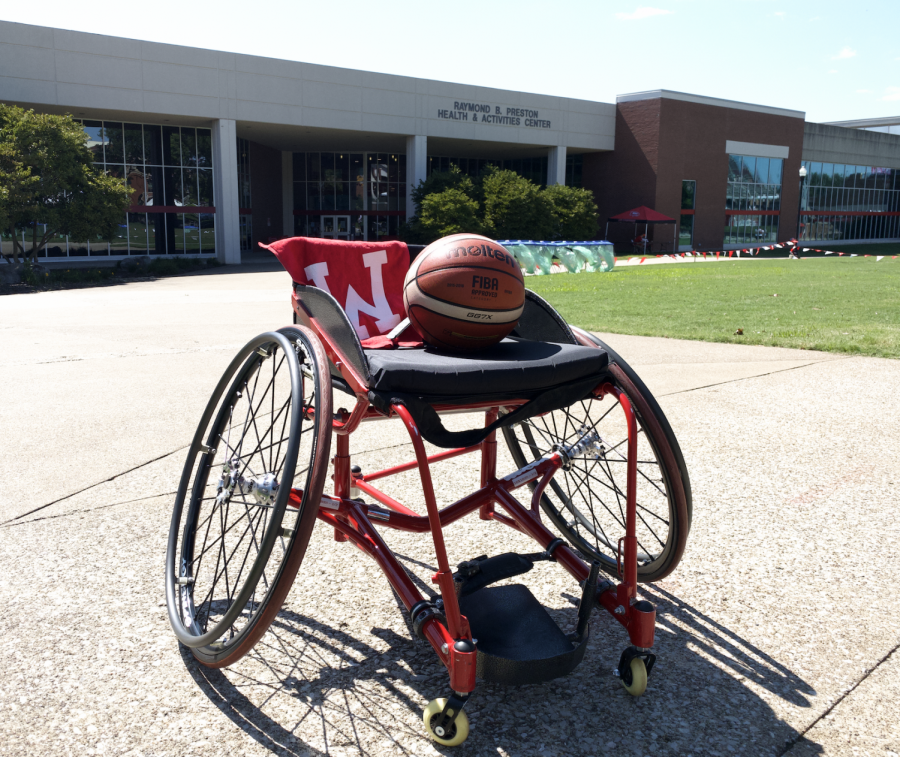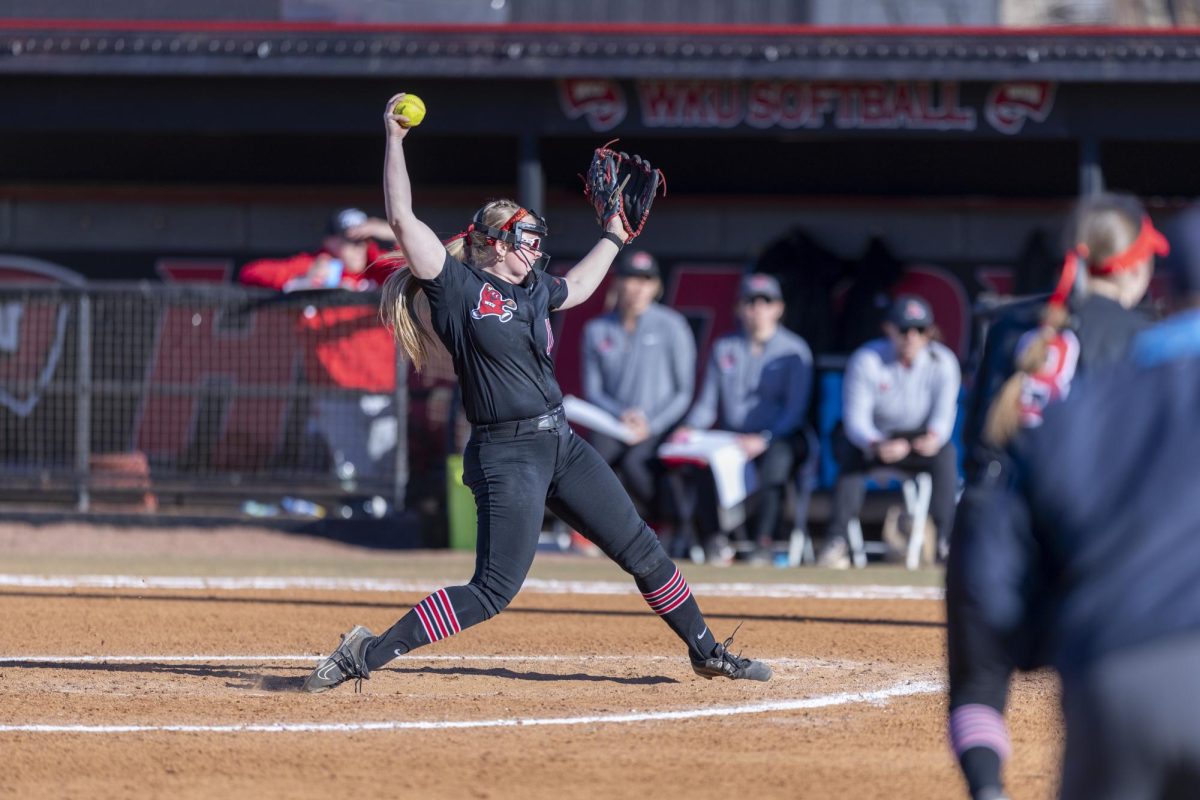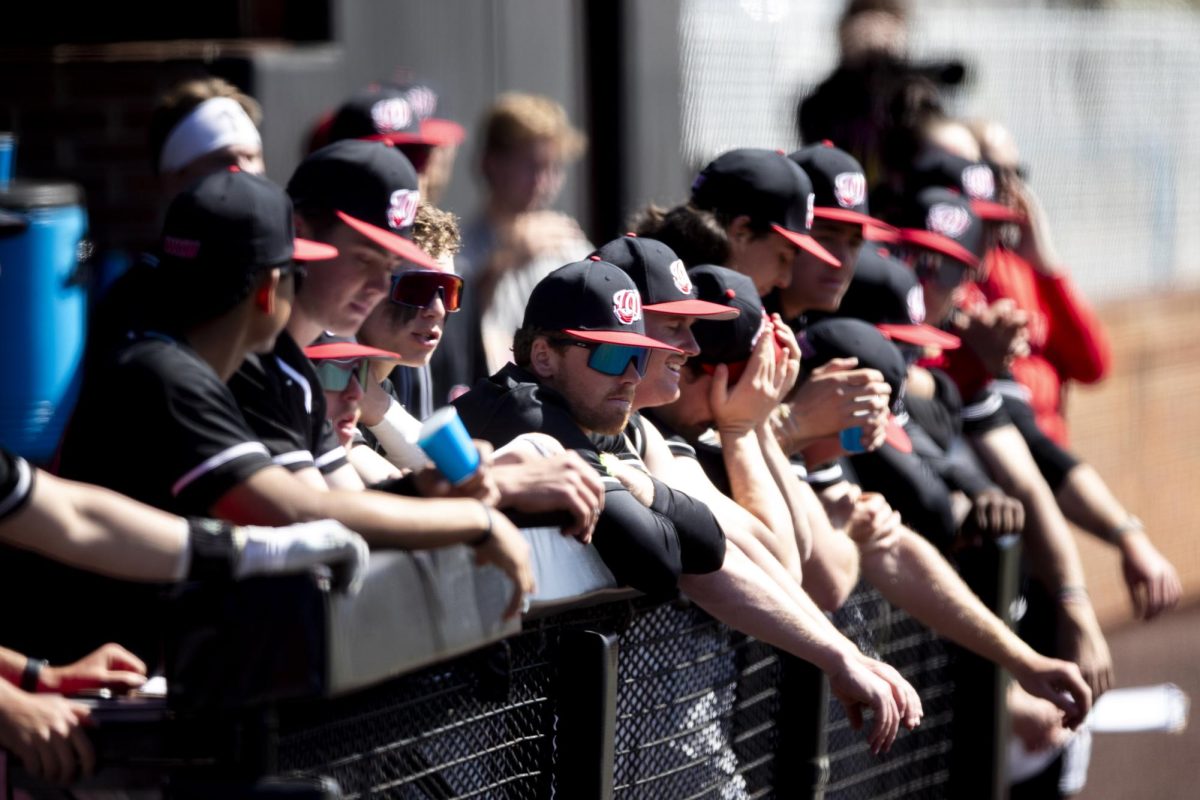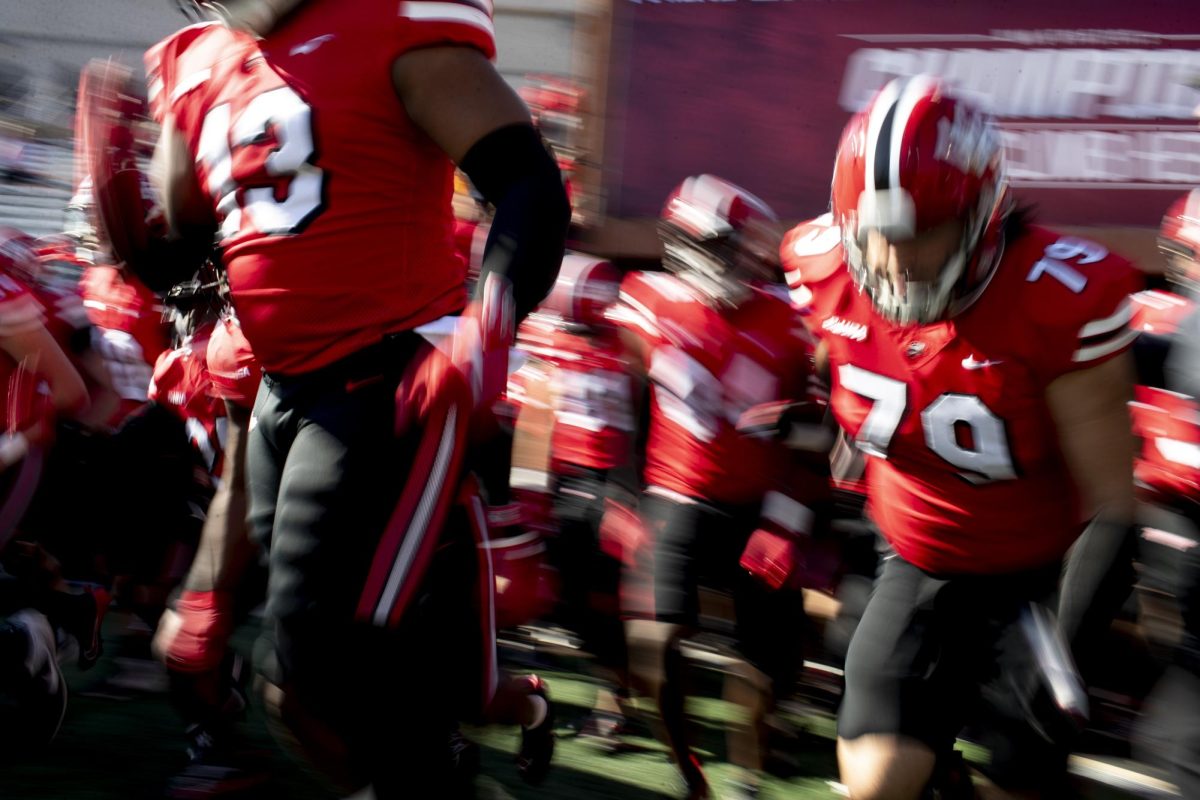Adaptive sports program to offer WKU students a unique athletic perspective
Bowling Green Parks and Recreation and WKU Campus Recreation and Wellness are teaming up to bring adaptive sports to students.
September 3, 2021
Maddie Duncan became paralyzed in middle school while a member of her track team. Thanks to adaptive sports, her love for athletics didn’t have to end.
“About halfway through high school, my track coach emailed my mom and [said] ‘Hey listen, Madison could compete in adaptive shot,’” Duncan said. “‘Does she want to do it?’”
It took virtually no time for Duncan to make up her mind.
“We joke that it took like .5 seconds for me to say back, ‘Yes.’”
Cameron Levis, a graduate student at WKU, works with Bowling Green Parks and Recreation to bring those kinds of adaptive sports opportunities to those in Duncan’s situation.
“Parks and recreation is just an awesome way to bring people together, regardless of what differences they may have,” Levis said. “We like to say that we try to give everybody a seat at the table, and with these programs that’s what we’re trying to do.”
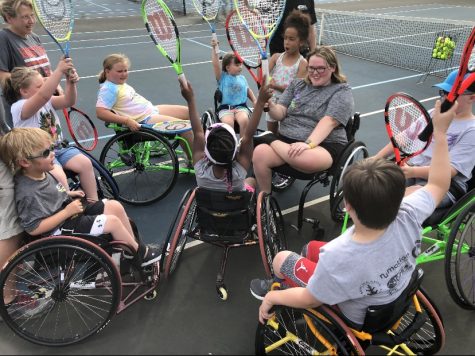
Bowling Green Parks and Recreation is teaming up with WKU Campus Recreation and Wellness to start an adaptive sports program on the Hill, with events planned to take place in the Preston Center. There are adaptive programs in place for children and adults, but Levis hopes the program on campus will fill that age gap and provide ample sports opportunities for college students.
“We have youth programming for adaptive sports [and] we have adult programming for adaptive sports,” Levis said. “What we’re doing is partnering up with Campus Recreation and Wellness to start a dedicated collegiate adaptive sports program, just to extend our reach, seeking to provide any opportunities possible for people with physical disabilities to pursue recreational sport.”
A collegiate adaptive sports program is unique to the state of Kentucky. Levis shared there are fewer than 30 such programs nationwide, and with roughly 62,000 persons under the age of 18 in the US with disabilities, the demand currently outweighs the supply.
“What we’re starting here at WKU is incredibly unique. There’s less than 30 collegiate adaptive sports programs across the entire country, and this is the first one in the state of Kentucky,” Levis said. “No other university or college is starting a comprehensive adaptive sports program at the collegiate level that we are.”
Levis hopes the program will attract students with disabilities to enroll at WKU due to the unique opportunity it presents.
“One thing we talk about a lot with this program is some of the implications it can have from a higher-education setting in terms of diversifying the student body,” Levis said. “One of our goals with this program is to see how it can impact [not only] the recruitment of students with disabilities, but also the retention of those students once they get to campus. We’re hopefully giving those individuals a reason to come to WKU but also a reason to stay.”
Duncan hopes the program will serve as a way to put students into the shoes of a person with a disability in order to foster understanding.
“This is just a new experience for everybody to kind of put yourself in the shoes of somebody like me who’s in a chair,” Duncan said. “You get to step out of your world for a minute and into my world.”
Jerrell Kelly, assistant director of programs at WKU Campus Recreation and Wellness, worked with Levis to bring the program to the Hill. Kelly echoed Duncan’s thoughts.
“It’s an opportunity to do something that maybe you’re not used to doing, meeting people that you may not have had the chance to meet before,” Kelly said. “Really getting the opportunity for an additional challenge and understanding more of the different perspectives that are there.”
Events will be open to the entire student body and anyone who is interested is encouraged to participate. Students will get the chance to use a sport wheelchair, which has several unique features a daily-use wheelchair lacks.
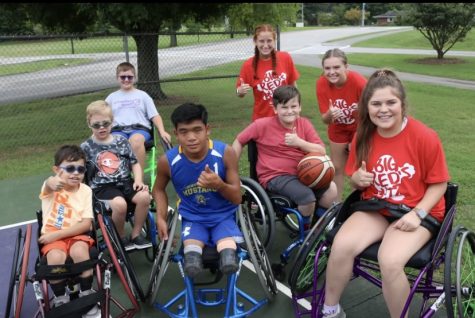
“On a daily-use chair, your wheels are going to be straight down. With the sport [chair], they’re going to be sort of at an angle, just to provide a little bit more stability, a little bit more mobility and agility to play sports,” Levis said. “There’s some more stability features in the back with some back wheels that just make it a little easier to use.”
Duncan expressed her love for the game of sled hockey, a sport in which players sit on a platform connected to skates and use sticks to both steer and push the puck. Duncan admits the game may be a little tricky for beginners.
“It’s so hard, I would just fall over because I would lose my balance,” Duncan said with a laugh.
Events are still being finalized but will be announced on the program’s website. One to watch out for is an adaptive sports showcase held at the Preston Center in October that will give students an introduction to the world of adaptive sports.
“October 24 from 2-4 we’re going to have an adaptive showcase here at [the Preston Center], anybody is welcome to come,” Duncan said. “We’re going to try to do basketball, tennis, goalball and I hope that we can maybe get a hand cycle to have tested out.”
Levis hopes that the partnership between Bowling Green Parks and Recreation and WKU Campus Wellness and Recreation will finally grant students with disabilities the opportunity to fulfill their athletic aspirations right here at home on the Hill.
“We’re just really excited to offer something that’s going to allow us to impact our community in a great way.”
Sports Editor Jake Moore can be reached at charles.moore275@topper.wku.edu. Follow him on Twitter @Charles_JMoore.



